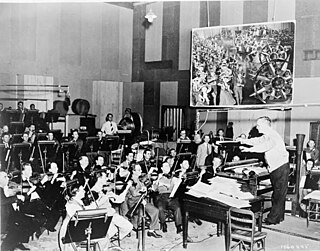
In music, a single is a type of release of a song recording of fewer tracks than an album or LP record, typically one or two tracks. A single can be released for sale to the public in a variety of physical or digital formats. Singles may be standalone tracks or connected to an artist's album, and in the latter case would often have at least one single release before the album itself, called lead singles.

An extended play (EP) is a musical recording that contains more tracks than a single but fewer than an album or LP record. Contemporary EPs generally contain up to eight tracks and have a playing time of 15 to 30 minutes. An EP is usually less cohesive than an album and more "non-committal".

The twelve-inch single is a type of vinyl gramophone record that has wider groove spacing and shorter playing time with a "single" or a few related sound tracks on each surface, compared to LPs which have several songs on each side. It is named for its 12-inch (300 mm) diameter that was intended for LPs. This technical adaptation allows for louder levels to be cut on the disc by the mastering engineer, which in turn gives a wider dynamic range, and thus better sound quality. This record type, which is claimed to have been accidentally discovered by Tom Moulton, is commonly used in disco and dance music genres, where DJs use them to play in clubs. They are played at either 33+1⁄3 or 45 rpm. The conventional 7-inch single usually holds three or four minutes of music at full volume. The 12-inch LP sacrifices volume for extended playing time.

MGM Records was a record label founded by the Metro-Goldwyn-Mayer film studio in 1946 for the purpose of releasing soundtrack recordings of their musical films. It transitioned into a pop music label that continued into the 1970s. The company also released soundtrack albums of the music for some of their non-musical films as well, and on rare occasions, cast albums of off-Broadway musicals such as The Fantasticks and the 1954 revival of The Threepenny Opera. In one instance, MGM Records released the highly successful soundtrack album of a film made by another studio, Columbia Pictures's Born Free (1966).

An album is a collection of audio recordings issued on a medium such as compact disc (CD), vinyl (record), audio tape, or digital. Albums of recorded sound were developed in the early 20th century as individual 78 rpm records (78s) collected in a bound book resembling a photo album; this format evolved after 1948 into single vinyl long-playing (LP) records played at 33+1⁄3 rpm.
"Blue Room" is a show tune from the 1926 Rodgers and Hart musical The Girl Friend, where it was introduced by Eva Puck and Sammy White. It is also a jazz standard.

The Voice of Frank Sinatra is the debut studio album by American singer Frank Sinatra, released on Columbia Records, catalogue C-112, March 4, 1946. It was first issued as a set of four 78 rpm records totaling eight songs, the individual discs given Columbia 78 catalog numbers 36918, 36919, 36920, and 36921. The album went to number 1 on the fledgling Billboard chart. It stayed at the top for seven weeks in 1946, spending a total of eighteen weeks on the charts. The album chart consisted of just a Top Five until August 1948. The cover depicted is that of the original 78 rpm release cover, also used on the compact disc reissue.

The LP is an analog sound storage medium, specifically a phonograph record format characterized by: a speed of 33+1⁄3 rpm; a 12- or 10-inch diameter; use of the "microgroove" groove specification; and a vinyl composition disk. Introduced by Columbia Records in 1948, it was soon adopted as a new standard by the entire US record industry and, apart from a few relatively minor refinements and the important later addition of stereophonic sound in 1957, it remained the standard format for record albums during a period in popular music known as the album era. LP was originally a trademark of Columbia and competed against the smaller 7-inch sized "45" or "single" format by RCA Victor, eventually ending up on top. Today in the vinyl revival era, a large majority of records are based on the LP format and hence the LP name continues to be in use today to refer to new records.

The songs from the 1939 musical fantasy film The Wizard of Oz have taken their place among the most famous and instantly recognizable American songs of all time, and the film's principal song, "Over the Rainbow", is perhaps the most famous song ever written for a film. Music and lyrics were by Harold Arlen and E.Y. "Yip" Harburg, who won an Academy Award for Best Song for "Over the Rainbow."

Merry Christmas is a Christmas-themed compilation album by Bing Crosby that was released in 1945 on Decca Records. It has remained in print through the vinyl, CD, and downloadable file eras, currently as the disc and digital album White Christmas on MCA Records, a part of the Universal Music Group, and currently on vinyl as Merry Christmas on Geffen Records. It includes Crosby's signature song "White Christmas", the best-selling single of all time with estimated sales of over 50 million copies worldwide. The album was certified 4× Platinum by RIAA for selling over 4 million copies in United States. The original 1945 release and subsequent re-releases and re-packages spent a total of 39 weeks at no. 1 on the Billboard pop albums chart.

Let There Be Love is Joni James debut album, recorded in 1953 and released by MGM Records at the end of the year. It was released in a four-disc 10-inch 78-rpm record box, in both a two-disc 7-inch 45-rpm extended-play foldout album and a four-disc 45-rpm regular-play box and on a 10-inch 33⅓-rpm album. The serial number, 222, coincidentally included James's lucky number, "22," which appeared in many of her record serial numbers all over the world.
The original soundtrack to the film Easter Parade was released by MGM Records as a set of four 10-inch 78-rpm shellac records and as a 10-inch 33-rpm long-play. The soundrack featured songs performed by Judy Garland, Fred Astaire, Peter Lawford, Ann Miller and played by the Johnny Green Orchestra.
The original soundtrack to the film Summer Stock was released by MGM Records as a set of four 10-inch 78-rpm shellac records and as a 10-inch 33-rpm long-play. The soundrack featured songs performed by Judy Garland, Gene Kelly, Phil Silvers and Gloria DeHaven.
The original soundtrack to the 1947 film Till the Clouds Roll By was released by MGM Records in the same year as a set of four 10-inch 78-rpm shellac records.
The original soundtrack to the 1948 film The Pirate was released by MGM Records earlier in the same year as a set of three 10-inch 78-rpm shellac records The album contained songs performed by Judy Garland and Gene Kelly.
The original soundtrack to the 1952 film Singin' in the Rain was released by MGM Records in the same year in three formats: as a set of four 10-inch 78-rpm shellac records, as a set of four 7-inch EPs, and as a 10-inch long-play record. It contained songs performed by Gene Kelly, Donald O'Connor and Debbie Reynolds.
The original soundtrack to the 1951 film An American in Paris was released by MGM Records in three formats: as a set of four 10-inch 78-rpm shellac records, as a set of four 7-inch EPs, and as a 10-inch long-play record. It contained songs sung by Gene Kelly and Georges Guétary and "An American in Paris" ballet music performed by Johnny Green and the MGM Studio Orchestra.
The original soundtrack to the 1953 film The Band Wagon was released by MGM Records in the same year in three formats: as a set of four 10-inch 78-rpm shellac records, a set of two 45-rpm EPs, and as a 12-inch 33-rpm LP record.
The original soundtrack to the 1951 film Royal Wedding was released by MGM Records in the same year in three formats: as a set of four 10-inch 78-rpm shellac records, a set of fouir 45-rpm EPs, and as a 10-inch 33-rpm LP record.









